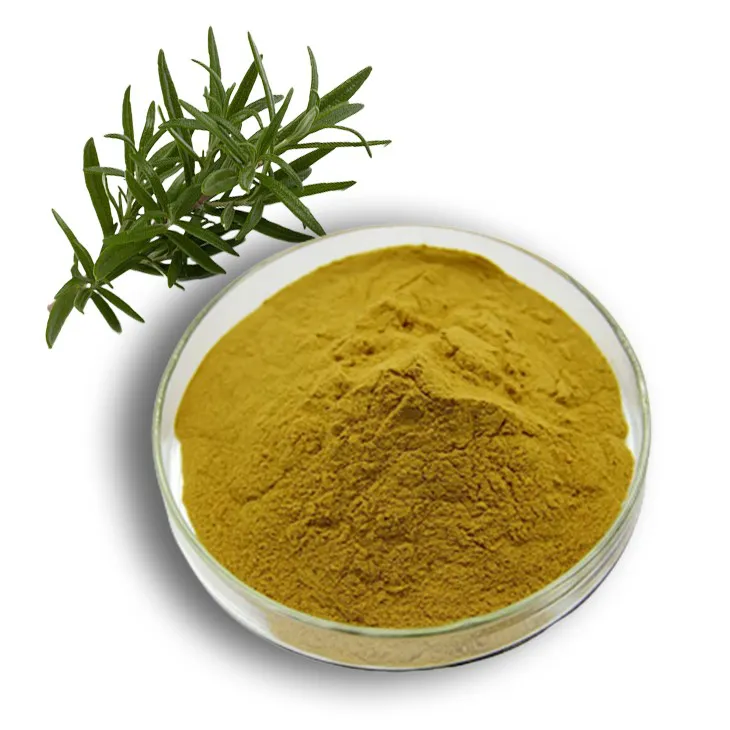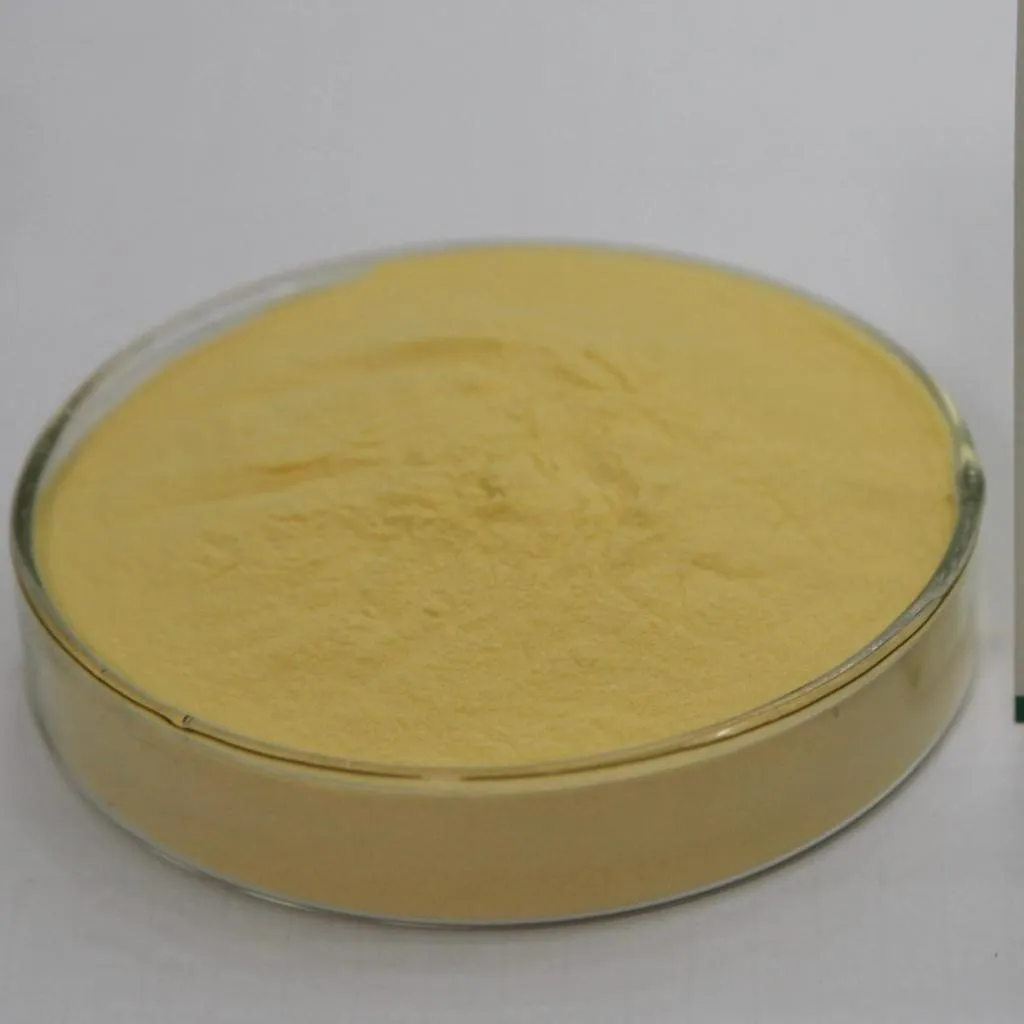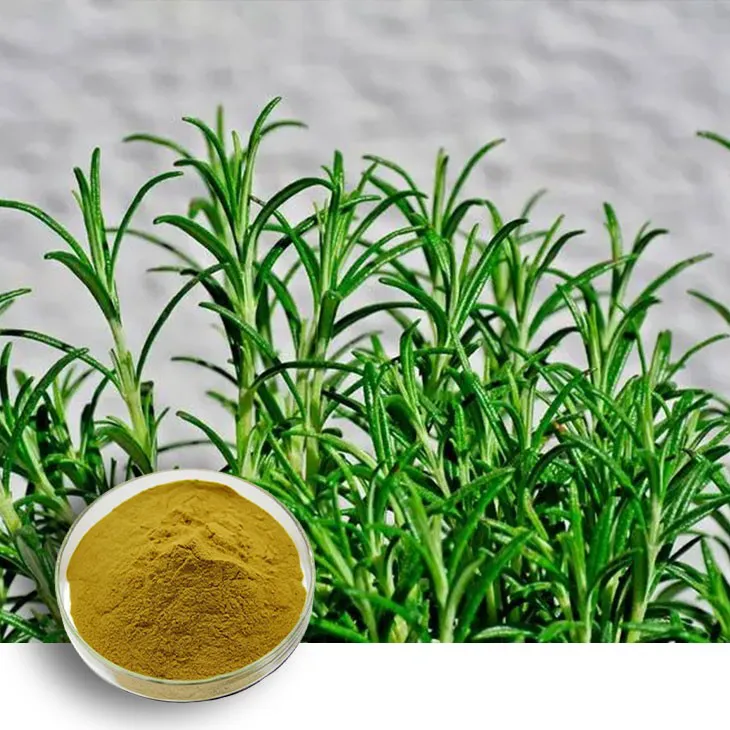- 0086-571-85302990
- sales@greenskybio.com
The Best Herb for Treating Anxiety and Insomnia: Rosemary Extract
2024-11-12

Introduction
In modern society, anxiety and insomnia have become increasingly common problems. People are constantly seeking natural and effective remedies to deal with these issues. One such potential solution is Rosemary extract. Rosemary, a well - known herb, has been used for centuries in traditional medicine. In recent years, scientific research has begun to uncover the various properties of Rosemary extract that may make it an excellent choice for treating anxiety and insomnia.

Antioxidant Properties of Rosemary extract
1. What are antioxidants?
Antioxidants are substances that can prevent or slow damage to cells caused by free radicals. Free radicals are unstable molecules that are produced in the body during normal metabolic processes, as well as in response to environmental factors such as pollution, radiation, and smoking. When free radicals accumulate, they can cause oxidative stress, which has been linked to a variety of health problems, including anxiety and insomnia.
2. Rosemary extract as an antioxidant
Rosemary extract is rich in antioxidants, such as rosmarinic acid, carnosic acid, and carnosol. These compounds have been shown to scavenge free radicals effectively. By reducing oxidative stress in the body, rosemary extract may help to improve overall health and well - being. In the context of anxiety and insomnia, oxidative stress can disrupt the normal functioning of the nervous system. By counteracting this stress, rosemary extract may play a role in calming the nerves and promoting better sleep.

The Role of Rosemary Extract in Calming the Nervous System
1. Interaction with neurotransmitters
Rosemary extract may interact with neurotransmitters in the brain. Neurotransmitters are chemicals that transmit signals between nerve cells. Imbalances in neurotransmitter levels are often associated with anxiety and other mood disorders. For example, gamma - aminobutyric acid (GABA) is an inhibitory neurotransmitter that helps to calm the nervous system. Some studies suggest that rosemary extract may enhance the activity of GABA, thereby reducing anxiety. Additionally, rosemary extract may also affect other neurotransmitters such as serotonin, which is involved in regulating mood, sleep, and appetite.
2. Anti - inflammatory effects on the nervous system
Inflammation in the nervous system can also contribute to anxiety and insomnia. Rosemary extract has anti - inflammatory properties. It can reduce the production of inflammatory cytokines in the body. By reducing inflammation in the nervous system, rosemary extract may help to relieve stress and anxiety, and promote a more relaxed state. This, in turn, can have a positive impact on sleep quality.

How Rosemary Extract May Improve Sleep Quality
1. Relaxation and stress reduction
As mentioned above, rosemary extract can calm the nervous system and reduce stress. When a person is in a relaxed state, it is easier for them to fall asleep and stay asleep. By reducing anxiety and promoting relaxation, rosemary extract can create a more conducive environment for sleep. For example, taking a warm bath with a few drops of rosemary essential oil before bed can help to relax the body and mind, preparing them for sleep.
2. Regulation of the sleep - wake cycle
The body has an internal clock, known as the circadian rhythm, which regulates the sleep - wake cycle. Disruptions to this cycle can lead to insomnia. Some research suggests that rosemary extract may help to regulate the circadian rhythm. It may do this by interacting with hormones and neurotransmitters involved in the sleep - wake cycle, such as melatonin. By helping to keep the circadian rhythm in balance, rosemary extract can improve sleep quality and duration.

Incorporating Rosemary Extract into Your Daily Routine
1. Using rosemary essential oil
- Diffusion: One of the simplest ways to use rosemary essential oil is through diffusion. You can use an essential oil diffuser to spread the aroma of rosemary throughout your living space. This can help to create a calming atmosphere, which may reduce anxiety and improve sleep. It is recommended to diffuse for 30 - 60 minutes before going to bed.
- Topical application: Rosemary essential oil can also be applied topically. However, it is important to dilute it with a carrier oil, such as coconut oil or jojoba oil, before applying it to the skin. You can massage a few drops of the diluted oil onto your temples, wrists, or the soles of your feet. This can help to relieve stress and promote relaxation.
2. Consuming rosemary in food and drink
- Tea: Rosemary tea is a popular way to consume rosemary. To make rosemary tea, simply steep a few sprigs of fresh rosemary or a teaspoon of dried rosemary in hot water for 5 - 10 minutes. You can drink this tea in the evening to help relax and prepare for sleep. It can also be consumed during the day to reduce anxiety.
- Cooking: Rosemary can be used in cooking to add flavor to various dishes. Incorporating rosemary into your diet, such as in roasted vegetables, soups, or meat dishes, can provide the benefits of rosemary extract in a natural way. However, it should be noted that cooking may reduce the potency of some of the active compounds in rosemary, so it is advisable to use fresh rosemary whenever possible.
3. Rosemary supplements
There are also rosemary supplements available in the market. These supplements usually contain concentrated rosemary extract. When choosing a rosemary supplement, it is important to look for a high - quality product from a reputable manufacturer. It is also advisable to consult a healthcare professional before starting any new supplement, especially if you have any underlying health conditions or are taking other medications.
Precautions and Considerations
1. Allergic reactions
Some people may be allergic to rosemary. Allergic reactions can range from mild skin irritation to more severe symptoms such as difficulty breathing. If you are using rosemary extract for the first time, it is advisable to do a patch test on a small area of skin before using it more widely. If you experience any signs of an allergic reaction, such as redness, itching, or swelling, discontinue use immediately.
2. Interaction with medications
Rosemary extract may interact with certain medications. For example, it may affect the way some drugs are metabolized in the body. If you are taking any medications, especially medications for blood pressure, diabetes, or blood - thinning, it is important to consult your doctor before using rosemary extract. Your doctor can advise you on whether it is safe to use and if any adjustments to your medication regimen are necessary.
Conclusion
Rosemary extract shows great potential as a natural remedy for anxiety and insomnia. Its antioxidant properties, role in calming the nervous system, and ability to improve sleep quality make it an attractive option. By incorporating rosemary extract into your daily routine in a safe and appropriate way, you may be able to experience the benefits of reduced anxiety and improved sleep. However, it is important to be aware of the precautions and considerations, especially when it comes to allergic reactions and interactions with medications. With further research, the full potential of rosemary extract in treating anxiety and insomnia may be more fully realized.
FAQ:
What are the antioxidant properties of rosemary extract?
Rosemary extract contains various antioxidants such as rosmarinic acid. These antioxidants help combat oxidative stress in the body. Oxidative stress can be caused by factors like pollution, poor diet, and stress itself. By reducing oxidative stress, rosemary extract may contribute to overall well - being, which in turn can have a positive impact on anxiety and insomnia as a healthy body is more likely to handle stress and sleep better.
How does rosemary extract calm the nervous system?
Rosemary extract may interact with certain neurotransmitters in the nervous system. It might have a modulating effect on GABA (gamma - aminobutyric acid), which is an inhibitory neurotransmitter. An increase in GABA activity can lead to a calming effect on the nervous system, reducing anxiety and promoting relaxation, which is beneficial for those suffering from anxiety and insomnia.
Can rosemary extract really improve sleep quality?
Yes, it can potentially improve sleep quality. By calming the nervous system as mentioned above, it helps the body and mind to relax. Additionally, its antioxidant properties may also contribute to a more balanced internal environment in the body. A less stressed and more balanced body is more likely to experience better sleep. However, individual results may vary, and it should not replace medical treatment for severe sleep disorders.
How can one incorporate rosemary extract into the daily routine?
There are several ways to incorporate rosemary extract into your daily routine. One way is to use it as a supplement, following the recommended dosage on the product. Another way is to consume rosemary - flavored foods or drinks. For example, you can drink rosemary tea, which can be made by steeping fresh or dried rosemary in hot water for a few minutes. You can also add rosemary extract to your cooking, especially in dishes like soups, stews, or roasted vegetables.
Is rosemary extract safe for everyone to use for anxiety and insomnia?
While rosemary extract is generally considered safe for most people when used in moderation, some individuals may be allergic to it. Pregnant or breastfeeding women should also consult a doctor before using it, as there is not enough research on its safety during pregnancy and lactation. People with certain medical conditions, such as bleeding disorders or those taking medications that may interact with rosemary extract, should also seek medical advice before using it for anxiety and insomnia.
Related literature
- The Antioxidant and Neuroprotective Effects of Rosemary Extract"
- "Rosemary Extract: A Natural Remedy for Nervous System Disorders"
- "The Role of Rosemary Extract in Promoting Sleep Quality"
- ▶ Hesperidin
- ▶ Citrus Bioflavonoids
- ▶ Plant Extract
- ▶ lycopene
- ▶ Diosmin
- ▶ Grape seed extract
- ▶ Sea buckthorn Juice Powder
- ▶ Fruit Juice Powder
- ▶ Hops Extract
- ▶ Artichoke Extract
- ▶ Mushroom extract
- ▶ Astaxanthin
- ▶ Green Tea Extract
- ▶ Curcumin
- ▶ Horse Chestnut Extract
- ▶ Other Product
- ▶ Boswellia Serrata Extract
- ▶ Resveratrol
- ▶ Marigold Extract
- ▶ Grape Leaf Extract
- ▶ New Product
- ▶ Aminolevulinic acid
- ▶ Cranberry Extract
- ▶ Red Yeast Rice
- ▶ Red Wine Extract
-
Curcuma Longa Extract
2024-11-12
-
Selenium yeast
2024-11-12
-
Dan Shen Root Extract/Salvia Root Extract
2024-11-12
-
Gynostemma pentaphyllum extract
2024-11-12
-
Cassia Seed Extract
2024-11-12
-
Tinospora cordifolia extract
2024-11-12
-
Bamboo Leaf extract
2024-11-12
-
Carrageenan Extract Powder
2024-11-12
-
Passionflower Extract
2024-11-12
-
Artichoke Extract
2024-11-12





















